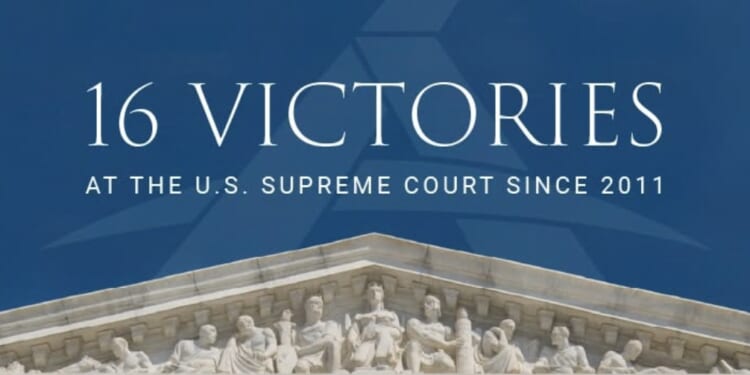Readers of a certain age will remember General Motors’ “Not Your Father’s Oldsmobile” advertising campaign back in the 1980s – a spirited attempt by the car manufacturer to break free of the brand’s connection to the old and stodgy driver of the past.
Writing in Monday’s New York Times, Daniel K. Williams, an associate professor of history at Ashland University, suggests today’s Gen Z conservative Christians (those born between the late 1990s and early 2010s) are not much like their fathers or grandfathers when it comes to faith and politics.
In the aftermath of COVID — and amid the longing for purpose, community and transcendence that many Gen Zers feel — a sizable minority of them have found their answer in conservative Christianity, fueling both a religious and a political revival among these young Americans. They bring a new attitude to the combination of faith and politics, and many see politics as a matter of spiritual warfare.
Professor Williams backs up his assertion by citing Barna research indicating Gen Z is more likely to attend church than previous generations. He then dives in to explain why, correlating their motivation to the popularity of the late Turning Point USA founder, Charlie Kirk.
Gen Z is clouded by despair. It’s not hard to imagine how young people traumatized by the isolation imposed by Covid and disillusioned by the perceived emptiness of secular liberalism might be drawn to a relationship with God and a purpose in life. Many were attracted by Mr. Kirk’s message of confidence and joyfulness in his conservative Christian faith.
Some believe that they are in a spiritual war against “enemies” and that they can expect to be persecuted for their convictions from a hostile secular state or society.
Professor Williams goes on to suggest some of Gen Z are pragmatic and even somewhat transactional.
He chillingly concludes, “Right now, many Gen Z Christians are signing up to be martyrs in a society they believe will reject their views on sexuality, gender and absolute truth. But for those who grow tired of such sensed persecution, winning by rejecting democracy will be a temptation.”
A seasoned academic, Williams covers his perspective with caveats. He’s not painting the entire contingent with a broad brush and suggesting younger conservatives are on the verge of kicking democracy to the curb if they don’t get what they want. But even suggesting it’s more than fringe is a bit curious.
What’s not clear is who and how would they even reject democracy in the first place. But even setting the legitimacy of such a provocative question aside, it doesn’t take much to answer it.
That’s because socially conservative Christians have been living as minorities in the culture for decades. In the United States, there’s been the soft persecution of evangelicals since the 1960s. From the United States Supreme Court declaring Bible reading and prayer in schools unconstitutional to the invention of a nationwide right to abortion in 1973, convictional Christian rights and beliefs have been regularly challenged, curtailed, and outright banned.
Lower courts have encouraged the harassment and persecution of Christian bakers and florists. Homeschooling parents have been told they have to share their children’s hearts and minds with radical propogandists. Countless dollars have been spent trying to defend Christian symbols and historic monuments on government property.
And how have Christians responded? No riots. No violence. No insurrections.
Instead, socially conservative Christians have rolled up their sleeves and waded into the cultural firestorm boldly and courageously, but also peacefully, pragmatically – and practically.
Back in 1980, Focus on the Family founder Dr. James Dobson was invited by President Jimmy Carter to speak at the White House Conference on the Family. Afterwards, Jim Guy Tucker, the conference director, told Dr. Dobson he didn’t know anyone in Washington who believed the socially conservative convictions Dr. Dobson shared with group. That very night Dr. Dobson and several other individuals started the Family Research Council.
In 1994, Dr. Dobson led a group of 29 other prominent Christian leaders and launched what was then known as the Alliance Defense Fund, known today as Alliance Defending Freedom. Their goal was to develop a strategy “to protect God-given freedoms in the courts and to recruit and train attorneys dedicated to that same mission.”
Socially conservative Christians are driven and motivated, but they play by the rules – and if they don’t agree with the rules, they pursue the legal means to change them.
Most importantly, Christian Gen Zers, as well as believers from every other generation, recognize this world is a mere stopover to the next. We care deeply about today’s policies because policies impact people – but the Kingdom to come is the grand and glorious destination we’re all aiming for tomorrow.
Image credit: Alliance Defending Freedom.











